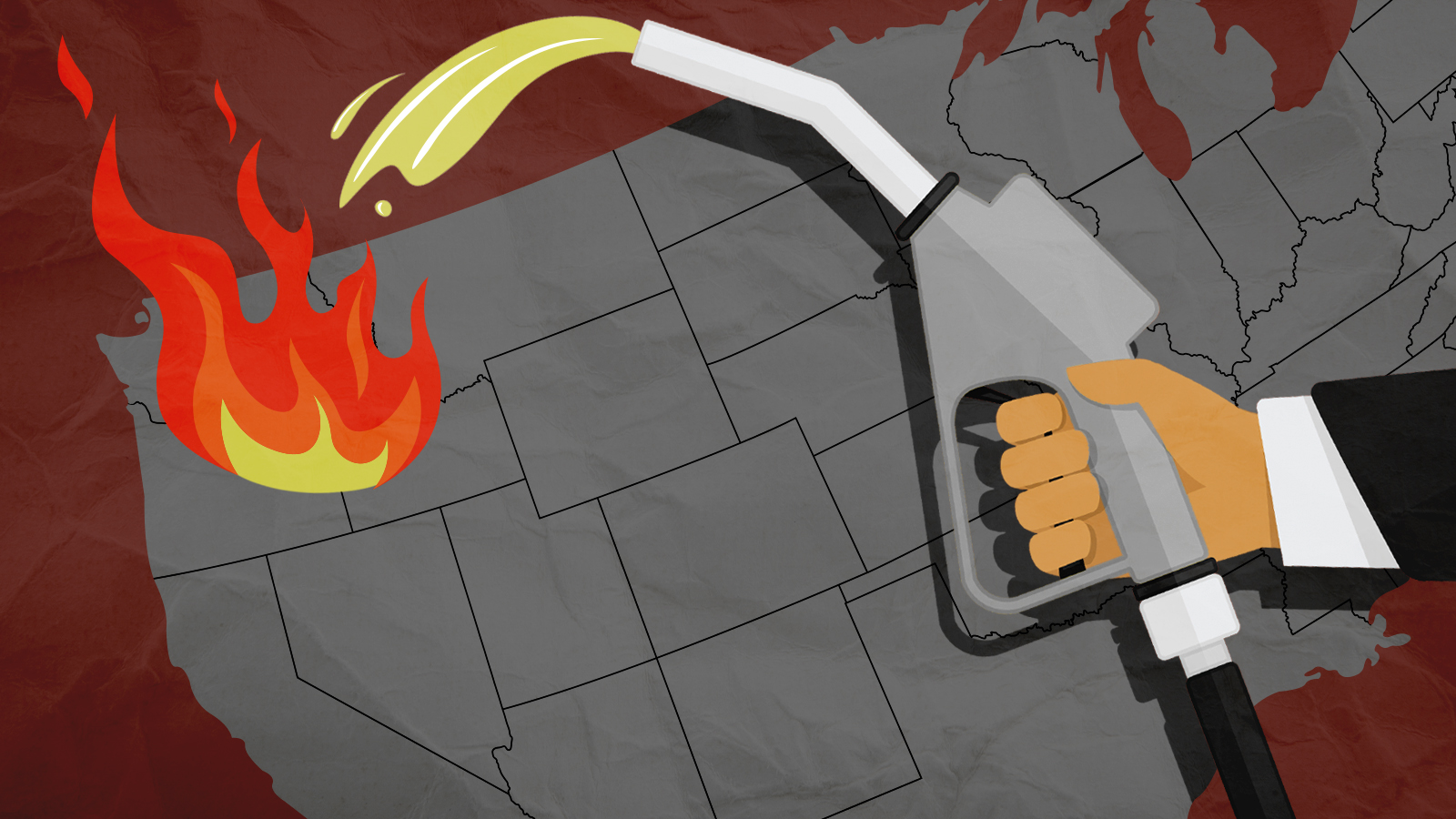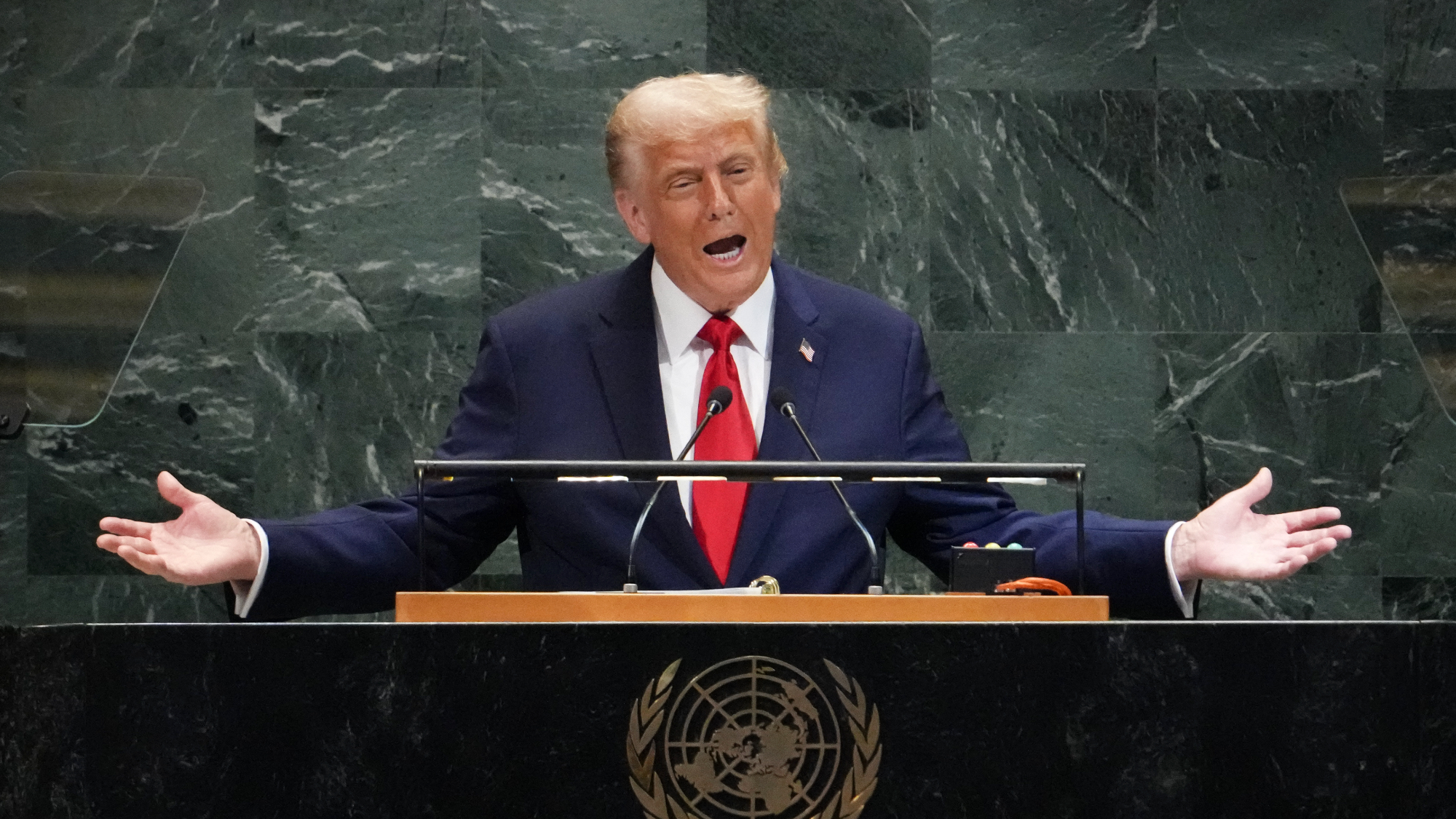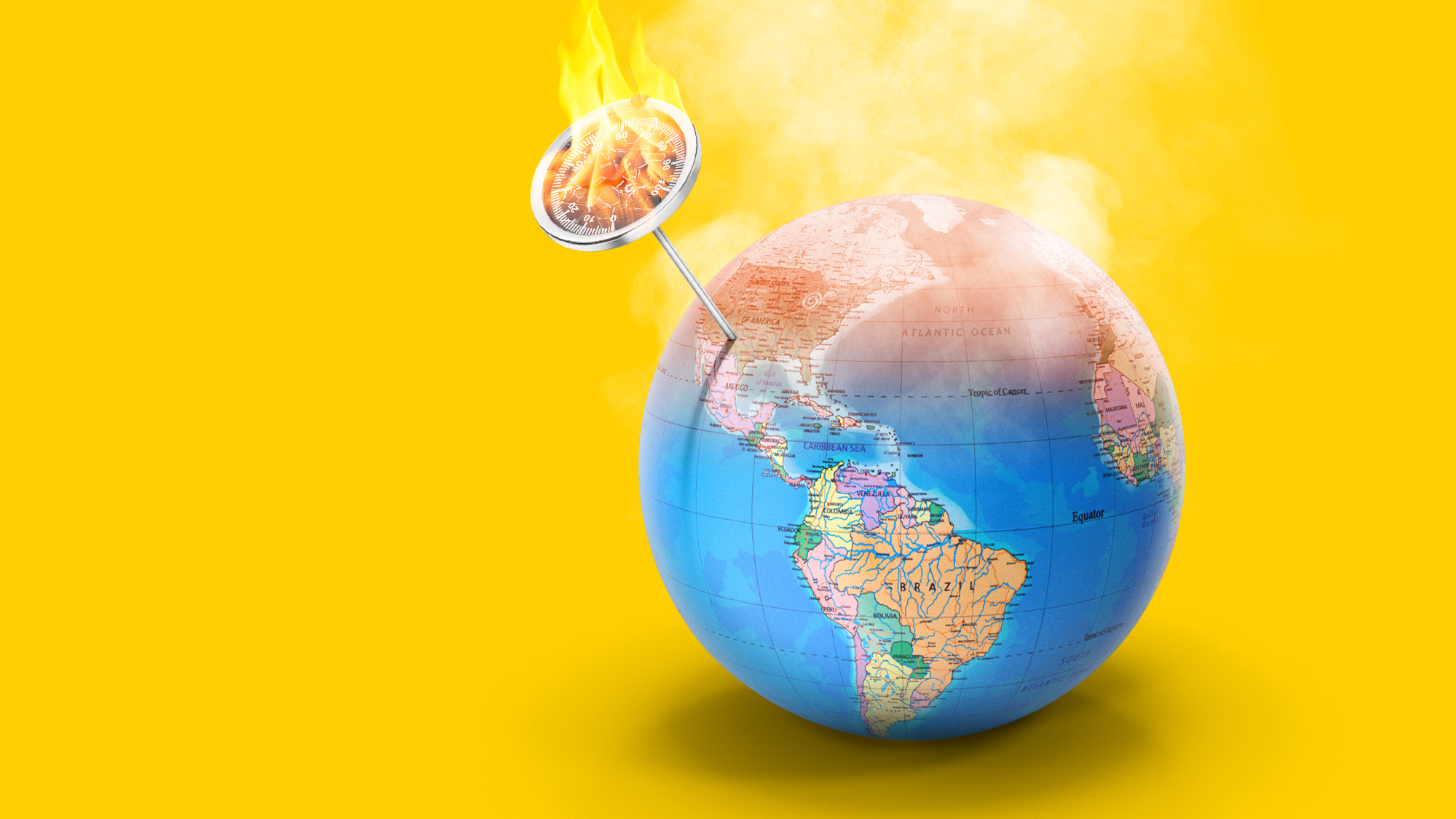The villains behind the heat wave
The fossil fuel industry knew all along what climate change would do to people


A free daily email with the biggest news stories of the day – and the best features from TheWeek.com
You are now subscribed
Your newsletter sign-up was successful
Last week, I noted that on June 27, Canada smashed its all-time heat record with a temperature of 116 degrees Fahrenheit, besting the previous record by three whole degrees. It turns out that was just the start: The same small town of Lytton that broke the national record broke it again the next day by hitting 118 degrees, and a third time the following day with a temperature of 121.3 degrees — or more than eight degrees higher than any previous recorded temperature in Canadian history.
"This is the most anomalous regional extreme heat event to occur anywhere on Earth since temperature records began. Nothing can compare," weather historian Christopher Burt told Yale Climate Connections. The heat roasted the forests surrounding Lytton, accelerating wildfires that produced their own "pyroculmulus" storms, creating more lightning and even more blazes. The day after setting the record, fire ripped through Lytton and burned it to the ground just 15 minutes after the first appearance of smoke.
During that same period last week, Greenpeace published a recording of an ExxonMobil lobbyist, Keith McCoy, in which he boasted about working with Sen. Joe Manchin (D-W.Va.) and the Biden administration to weaken Democrats' climate policy, discussed the company's role in funding climate denial, and suggested the company's support of a carbon tax is purely a "talking point" because they expect it will never happen. (The company denied this was true, but there's no reason to take their word for it.)
The Week
Escape your echo chamber. Get the facts behind the news, plus analysis from multiple perspectives.

Sign up for The Week's Free Newsletters
From our morning news briefing to a weekly Good News Newsletter, get the best of The Week delivered directly to your inbox.
From our morning news briefing to a weekly Good News Newsletter, get the best of The Week delivered directly to your inbox.
All Americans are implicated in climate change to some degree. As a country, the U.S. has for decades contributed several times the global average of per capita emissions. But a relative handful of people — principally corporate executives at large fossil fuel companies, their major shareholders, company apparatchiks who hand bribes to politicians, and those that accept those bribes — bear the overwhelming majority of the responsibility. Their amoral greed is directly implicated in the climate disasters that are killing thousands of people already, and will soon be killing millions.
At least several hundred people in western North America were killed by the heat wave — at time of writing, perhaps 320 deaths in Canada and 75 in the United States were being linked to the heat, with likely more remaining to be discovered. Estimates of the costs of melted or broken infrastructure have not yet been compiled, but are sure to be enormous.
It was an awful disaster. Yet in some ways, it was lucky the heat wave struck where it did. Canada and the U.S. are both rich, and not too many people live in that part of either country. If the same scale of heat wave had hit a poor, densely populated country, the death toll would be exponentially greater. Science fiction writer Kim Stanley Robinson's recent book The Ministry of the Future opens with a gripping, terrifying account of a near-future heat wave in India that kills 20 million people in a matter of weeks.
Absent a Second World War-scale global policy mobilization that is nowhere in sight, something like Robinson's scenario is absolutely certain to happen somewhere on the planet, sooner or later. Here's why: Beyond a "wet-bulb" temperature of about 95 degrees (the combined heat and humidity level at which the body can no longer cool itself by sweating), no human being can survive for long and even the healthiest person sitting motionless in the shade will cook themselves to death from the inside within a few hours.
A free daily email with the biggest news stories of the day – and the best features from TheWeek.com
A study from last year found that big chunks of humanity live in places that routinely get quite close to the self-cooking mark, that two particular places (located on the Persian Gulf and in Pakistan) have already seen brief spikes over it, and that the frequency of these extreme heat events is increasing fast almost everywhere. This is also happening much faster than previous climate models predicted, which held that such temperatures would not be reached until the last quarter of this century.
As we are seeing today, though, it does not even take truly extreme heat to kill people. The 2003 heat wave in Europe killed over 70,000 people, and one that hit Russia in 2010 killed about 11,000. Neither got even close to the metabolic limit. Someday, probably within the next decade or two, an ultra-severe heat wave is going to strike a heavily populated region without the resources to cool off its citizens, and millions will die. And heat is just one of dozens of ways — drought, flooding, sea level rise, crop failures, and so on — that climate change will kill people.
ExxonMobil and its fossil-fuel competitors know all this perfectly well. The company knew the basic science of climate change beyond any doubt by 1979 at the latest, from its own research and the work of other scientists. At that point it chose to spend tens of millions of dollars on an enormously successful campaign to sow doubt about what its own data was telling them (following the similarly-murderous strategy of the tobacco industry). The reason, you see, is that doing otherwise would have dented their profits. "Did we join some of these 'shadow groups' to work against some of the early efforts? Yes, that's true. But there's nothing illegal about that," McCoy told the Greenpeace activists. "You know, we were looking out for our investments, we were looking out for our shareholders."
The United States is both the biggest historical contributor to climate change and the only rich country where a major political party outright denies the truth about what is happening. The biggest reason for that is the propaganda campaign executed by ExxonMobil and other deep-pocketed fossil fuel interests, like the Koch family, who successfully convinced conservatives that climate change was fake liberal nonsense.
Well over half of global greenhouse gas emissions have happened since 1990, when the U.S. was the unchallenged global hegemon. If America had done what was obviously in the best interest of itself and all humanity at that point, and led a global movement away from carbon energy, heading off climate change would have been massively cheaper and easier. But that would have been expensive and inconvenient for wealthy fossil fuel executives, so they decided to boil the planet. Millions and millions of deaths are the certain and easily foreseen consequence.
Ryan Cooper is a national correspondent at TheWeek.com. His work has appeared in the Washington Monthly, The New Republic, and the Washington Post.
-
 Crisis in Cuba: a ‘golden opportunity’ for Washington?
Crisis in Cuba: a ‘golden opportunity’ for Washington?Talking Point The Trump administration is applying the pressure, and with Latin America swinging to the right, Havana is becoming more ‘politically isolated’
-
 5 thoroughly redacted cartoons about Pam Bondi protecting predators
5 thoroughly redacted cartoons about Pam Bondi protecting predatorsCartoons Artists take on the real victim, types of protection, and more
-
 Palestine Action and the trouble with defining terrorism
Palestine Action and the trouble with defining terrorismIn the Spotlight The issues with proscribing the group ‘became apparent as soon as the police began putting it into practice’
-
 ‘States that set ambitious climate targets are already feeling the tension’
‘States that set ambitious climate targets are already feeling the tension’Instant Opinion Opinion, comment and editorials of the day
-
 Trump’s EPA kills legal basis for federal climate policy
Trump’s EPA kills legal basis for federal climate policySpeed Read The government’s authority to regulate several planet-warming pollutants has been repealed
-
 Trump pulls US from key climate pact, other bodies
Trump pulls US from key climate pact, other bodiesSpeed Read The White House removed dozens of organizations from US participation
-
 The billionaires’ wealth tax: a catastrophe for California?
The billionaires’ wealth tax: a catastrophe for California?Talking Point Peter Thiel and Larry Page preparing to change state residency
-
 Bari Weiss’ ‘60 Minutes’ scandal is about more than one report
Bari Weiss’ ‘60 Minutes’ scandal is about more than one reportIN THE SPOTLIGHT By blocking an approved segment on a controversial prison holding US deportees in El Salvador, the editor-in-chief of CBS News has become the main story
-
 Trump aims to take down ‘global mothership’ of climate science
Trump aims to take down ‘global mothership’ of climate scienceIN THE SPOTLIGHT By moving to dismantle Colorado’s National Center for Atmospheric Research, the White House says it is targeting ‘climate alarmism’
-
 ‘It’s ironic in so many ways’
‘It’s ironic in so many ways’Instant Opinion Opinion, comment and editorials of the day
-
 Newsom slams Trump’s climate denial at COP30
Newsom slams Trump’s climate denial at COP30speed read Trump, who has called climate change a ‘hoax,’ declined to send any officials to this week’s summit
